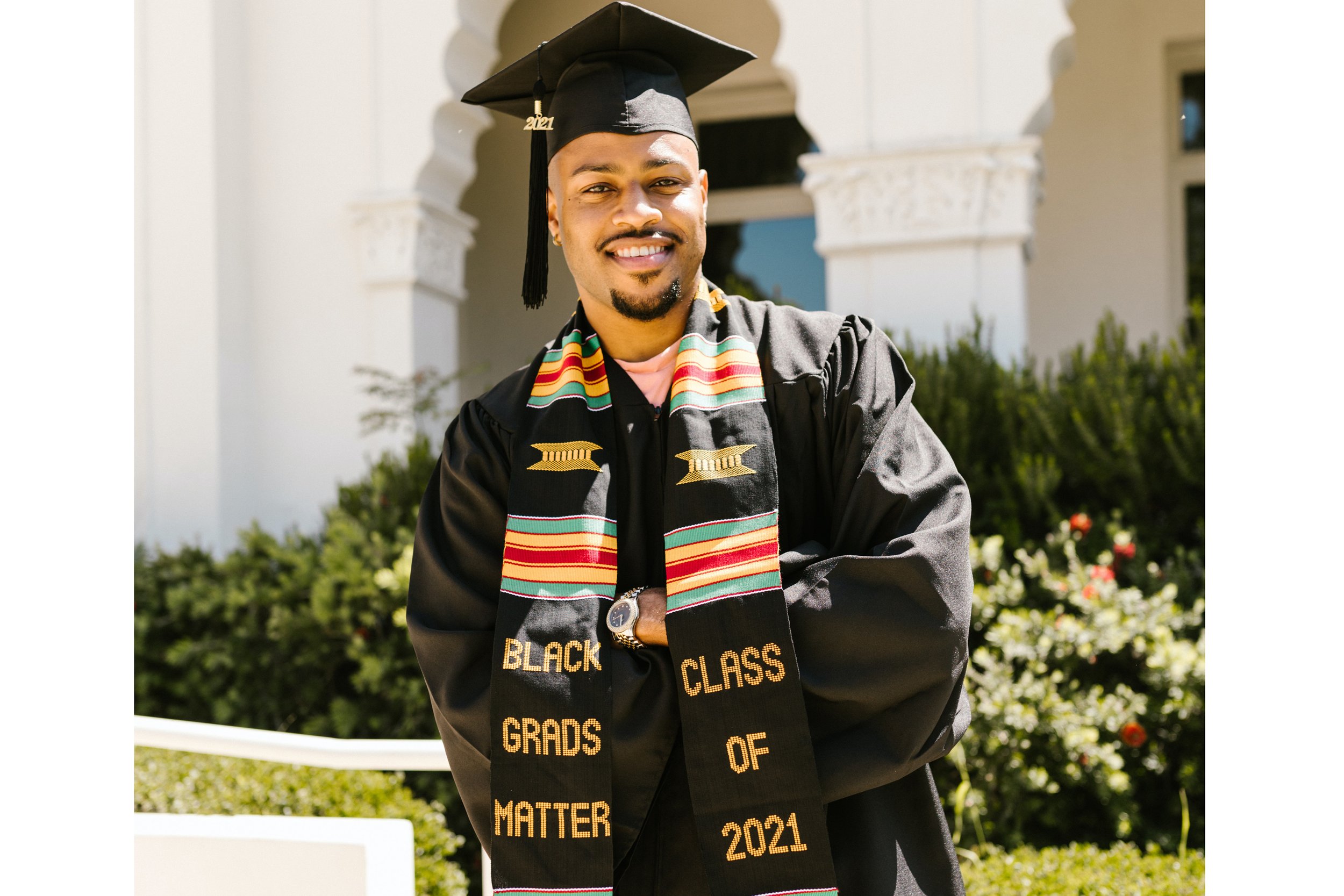After Race-Conscious Admissions: How to Provide Strategic and Aggressive College Application Advice to Academically Ambitious Black Students
The Supreme Court’s ruling in Students for Fair Admissions prohibited the consideration of race in college admission decisions. Kamal A. James and Dr. Irvin L. Scott provide guidance for fellow educators working to support academically ambitious Black students as they prepare for the college application process.
The New Innovator's Dilemma: Fostering Young Talent in the Age of AI
AI is dramatically changing entry-level work by reducing opportunities for human-to-human feedback and mentorship. Some employers and educators, however, are finding ways to help recent graduates and young workers gain the experience and connections needed to launch their careers.
Unlocking Success: Key Lessons from Academia-Government Collaborations in Advancing Public Policy
Collaboration between academics and government agencies is essential for advancing our understanding of public policy issues. Noelwah Netusil and Marie Walkiewicz describe how to overcome barriers that can hinder these efforts and limit their effectiveness.
Women’s Voices Matter
The absence of women’s speech from anthologies and history books is not just a case of missing content. What’s also lost are examples of women as authority figures, self-determined leaders, and informed, confident participants in public life and affairs.
Empowering Teachers: Tackling the Global Learning Crisis From the Front Line
High quality education is critical for reducing poverty and creating societal change, particularly in rural and underserved communities. Heather Hiebsch co-founded TeachUNITED to tackle this issue by prioritizing teacher quality and utilizing research-driven strategies to empower and support educators, and engage students.
Reframing Diversity, Equity and Inclusion in Higher Ed Through Olympic Values and Game Theory
OPINION COMMENTARY:
The merits of diversity, equity and inclusion (DEI) initiatives are being fiercely debated on university campuses and elsewhere in society. Dr. Judi Brown Clarke, a chief diversity officer at a public research university and Olympic medalist, advocates for incorporating Olympic values and game theory into DEI initiatives thereby creating inclusive campus environments.
Inspiring and Shaping Future Social Impact Leaders
A conversation with Brian Trelstad, newly appointed Faculty Chair of Harvard’s Advanced Leadership Initiative. A Senior Lecturer at Harvard Business School, Trelstad discusses his vision, priorities, challenges and goals as he takes over as the third Faculty Chair of the first interdisciplinary academic fellowship program created for experienced third stage leaders to help them address society’s pressing challenges through social impact strategies and projects.
Helping Youth Facing Barriers to Employment: When Small is an Advantage
Small organizations can often provide the most effective approaches to helping youth who face serious barriers to employment. Andrew McKnight, Executive Director of The Challenge Program and CP Furniture, describes the advantages of being nimble and innovative, along with the realities and challenges of being a small nonprofit working with this population of youth.
Facing the Future: The Urgent Need for Innovation in Higher Education
Former college president Brian Rosenberg explores the pressing need for change in higher education and why the industry is resistant to even discussing the crisis it faces. He paints a stark picture of an industry at a crossroads, highlighting the urgent need for innovation, adaptation, and a reevaluation of structures and practices to continue fulfilling its essential societal role.
AI Can Make Schools More Human, But Only If Schools Prioritize Relationship Metrics
Despite promises of efficiency leading to more focus on relationships between and among teachers and students, AI is on track to dramatically worsen student isolation – unless schools reconfigure their organizational models and metrics to elevate, rather than diminish, human relationships.
SCOTUS Opinions on Student Admissions and Debt Harm Our Economy
OPINION COMMENTARY:
Achieving racial equity has gone beyond a moral imperative to become an economic imperative for this nation. Peter Williams explains how the Supreme Court’s decisions on affirmative action and student loan debt makes the problem worse.
What Now? HBCUs Are Ready to Respond to the Supreme Court's Decision on Affirmative Action
OPINION COMMENTARY:
When the doors of college were reserved for whites only, Historically Black Colleges and Universities (HBCUs) gave African Americans the education they deserved and the strength to rise above bigotry. In the wake of the Supreme Court’s decisions that throttle affirmative action, 2021 Harvard ALI Fellow Terry Edmonds reminds us of the role HBCUs played in the past and the expanded role they may play now.
Harnessing the Power of Generative AI to Close the Achievement Gap
OPINION COMMENTARY:
One of the biggest barriers to closing the achievement gap is access to tutoring and academic support. Stephanie Sylvestre, a technology executive, explains how generative artificial intelligence (AI), with robust safeguards, user involvement and education, can help bridge gaps in student performance, boost comprehension, and improve emotional well-being.
Unconventional Threats to the U.S. Electoral System and the Power of Civic Engagement
Mark Medish, co-founder of Keep Our Republic, discusses strategies to protect our democratic electoral operating system — including through "hyper-localized community dialogue."
Faith in Public Schools: A Third Way
OPINION COMMENTARY:
Despite today’s polarized views about the role religion should play in U.S. public education, Dr. Irvin Scott, Senior Lecturer at the Harvard Graduate School of Education, argues that partnerships between faith groups and schools can provide critical support for our most vulnerable children.
Modernizing Workforce Development for a Healthy and Inclusive Economy
FUTURE OF WORK SERIES:
Millions of people languish at the margins of the workforce despite nearly two open positions for every unemployed job seeker. Kate Markin Coleman, 2017 Harvard ALI Fellow, offers principles for a data-based, stakeholder-driven, collaborative approach to modernize the nation’s workforce development system.
We Should Trust Youth to Drive Their Own Learning
OPINION COMMENTARY:
Studies suggest that too many young people believe what they are learning is not interesting and has no connection with life beyond the classroom. Courtney Welsh and Scott Hefter suggest new models and programs that would allow youths to structure their own curricula.
Southwire Company and Georgia Schools Innovative Partnership Increases At-Risk Students’ Graduation Rates
SOCIAL EQUITY SERIES:
How does a leading wire and cable manufacturer become a source of transformation for at-risk students? Burt Fealing from Southwire and Ethan Rouen from the Harvard Business School describe the 12 for Life program and how it has partnered with communities and achieved collective success.
OneGoal: A Social Impact Solution Where Your Journey Can Become Your Genius
SOCIAL EQUITY SERIES:
OneGoal reimagines secondary educational support by visualizing not just what its students plan to achieve but also who they become on their educational journey. OneGoal’s leadership seeks not merely to change the educational support system, but to change how society views the gifts each student develops along the way.
Solving Workforce Skills Gaps: Community Colleges, Employers and Integrators
FUTURE OF WORK SERIES:
Quality jobs that provide local living wages and equitable access to career pathways have become a critical part of the “future of work” conversation. Richard Kane and Barry Puritz of the Harvard Business School Club of New York’s Skills Gap Initiative, and Kenneth Adams, President of the LaGuardia Community College, discuss the creation of a non-degree program that is providing life-changing career pathways for individuals from low-income communities.




















